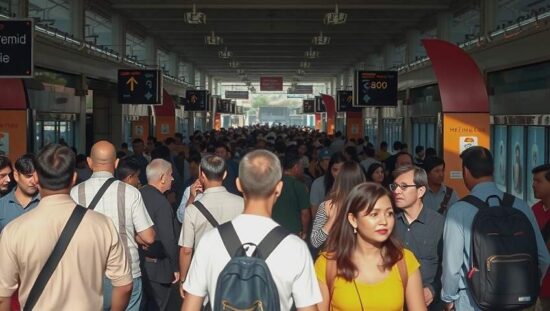The German Interior Ministry has reaffirmed its heightened vigilance concerning the security of Christmas markets across the nation, acknowledging a persistent and abstract threat landscape. A spokesperson for the ministry, responding to inquiries from the dts news agency, stated that security services are maintaining a “special focus” on these popular seasonal attractions, describing it as “self-evident” given past incidents.
While the Ministry confirms that financial and logistical support, including the deployment of federal police, is occasionally provided to municipalities struggling to meet increasingly stringent security requirements, concerns are growing regarding the potential burden on local authorities. Recent reports suggest that a handful of Christmas markets have already been cancelled this year due to the prohibitive cost of implementing adequate security measures.
The heightened anxieties are not unfounded. Christmas markets have repeatedly been targeted in devastating terrorist attacks in recent years. The echoes of the 2023 attack in Magdeburg, which resulted in six fatalities and the 2016 tragedy at the Breitscheidplatz in Berlin, claiming 13 lives – both perpetrated by vehicles driven into crowds – continue to cast a long shadow. These events underscore the vulnerability of large, densely populated public spaces and have fueled a cycle of increasingly complex and expensive security precautions.
The Deutsche Schaustellerbund (DSB) reports that despite the cancellations, over 3,250 Christmas markets are expected to operate nationwide, collectively attracting approximately 170 million visitors annually. However, the financial strain on municipalities and questions regarding the long-term sustainability of such stringent security protocols raise critical questions about the future of these cherished German traditions. Critics argue that the escalating costs are effectively pricing out smaller towns and cities, potentially diminishing the widespread enjoyment of Christmas markets and potentially creating a two-tiered system where only wealthier municipalities can adequately safeguard these events. The government now faces the complex challenge of balancing security concerns with the desire to preserve a vital component of German cultural heritage, while avoiding the creation of a climate of pervasive fear.





